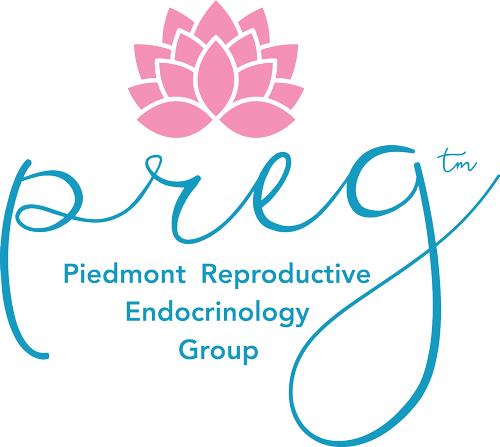Egg freezing, also known as oocyte cryopreservation, is becoming an increasingly popular option for women who want to preserve their fertility for the future. Whether you’re focused on your career, haven’t found the right partner, or are facing medical treatments that could affect your fertility, understanding the egg freezing process, costs, and success rates can help you decide if it’s the right choice for you.
What Is Egg Freezing?
Egg freezing is the process of extracting eggs from your ovaries and storing them at very low temperatures for future use. This modern fertility preservation method allows you to pause your biological clock, giving you more flexibility in planning your family. The eggs remain at the age at which they were frozen, which is a key factor in their quality and your future chances of pregnancy.
Why Consider Egg Freezing?
There are several reasons why women are considering egg freezing at Piedmont Reproductive Endocrinology Group (PREG):
- Postponing Pregnancy: You may want to delay having children to focus on your career, education, or personal goals.
- Medical Reasons: Treatments like chemotherapy, radiation, or surgery for cancer and other conditions can impact fertility. Egg freezing before treatment can safeguard your ability to have biological children later.
- Not Ready for a Partner: If you haven’t found the right partner but want to keep your options open, egg freezing offers peace of mind.
- Fertility Preservation: For women with conditions like endometriosis or autoimmune diseases, egg freezing can help preserve fertility.
- Flexibility: Some women prefer egg freezing over embryo freezing for ethical or religious reasons, or simply because they’re not ready to decide on a sperm donor.
The Egg Freezing Process Step by Step
If you’re considering egg freezing in South Carolina or North Carolina, here’s what you can expect at Piedmont Reproductive Endocrinology Group (PREG):
- Initial Consultation: Your journey begins with a visit to our fertility clinic. One of our reproductive endocrinologists will assess your fertility health using blood tests and ultrasound scans to evaluate your ovarian reserve.
- Ovarian Stimulation: You’ll take hormone injections for about 10-12 days on average to stimulate your ovaries to produce multiple eggs. Ultrasounds are performed every 3-4 days to monitor the growth of follicles (each one contains one egg), which tells us when it is time for egg retrieval and if any dose adjustments need to be made.
- Egg Retrieval: Once your eggs are mature, they are retrieved using a minimally invasive procedure under sedation. This typically takes approximately 30 minutes.
- Cryopreservation: The eggs are flash-frozen using an advanced technique called vitrification, which reduces the risk of ice crystal formation and preserves the eggs’ integrity.
- Storage: Your frozen eggs are stored securely at Piedmont Reproductive Endocrinology Group (PREG) and can remain viable for many years, until you’re ready to use them.
How Much Does Egg Freezing Cost in North Carolina and South Carolina?
One of the most common questions we hear at PREG is about egg freezing cost in South Carolina and North Carolina. Pricing for the process can vary depending on individual needs and circumstances, and typically includes consultations, hormone medications, monitoring, and the egg retrieval procedure. There is also an annual storage fee, which may vary depending on the number of eggs stored. Some insurance plans may cover egg freezing, especially if it’s medically necessary, but elective egg freezing is often an out-of-pocket expense. We recommend checking with your insurance provider and discussing payment plans with our financial team at Piedmont Reproductive Endocrinology Group (PREG). For detailed and up-to-date egg freezing pricing information, please contact PREG directly. We’re happy to help you understand your options and make fertility preservation accessible.
Best Age to Freeze Eggs: When Should You Consider It?
The best age to freeze eggs is generally before 35, as egg quality and quantity decline with age. Freezing eggs at age 34 or younger offers the highest chance of a successful pregnancy later. However, many women in their mid-to-late 30s also benefit from egg freezing. There isn’t a strict age limit for egg freezing, but most fertility clinics, including PREG, recommend it before your early 40s. We encourage you to schedule a consultation to discuss your unique situation and determine the best timing for you.
Egg Freezing Success Rates
Egg freezing success rates depend on several factors, including your age at the time of freezing, the number of eggs retrieved, and the fertility clinic’s expertise. Most experts recommend freezing 10-20 eggs to maximize your chances. Advances in vitrification technology have improved the survival rates of eggs after thawing, making success rates with frozen eggs similar to those with fresh eggs, especially for younger women.
The Benefits of Egg Freezing: Preserving Your Fertility and Expanding Your Future Options
Below are various benefits of egg freezing, highlighting how this advanced fertility preservation technique can empower women with greater control over their reproductive future.
- Preserves Fertility for the Future: Allows women to store eggs at a younger age, when egg quality is typically higher, for use later in life. Modern egg freezing techniques help preserve the cellular integrity of eggs, which can lead to higher survival and fertilization rates.
- Extends the Fertility Window: Offers the chance to delay childbearing for personal or medical reasons.
- Protects Against Medical Treatments: Provides a way to preserve reproductive potential before undergoing treatments like chemotherapy that may harm fertility.
- Empowers Career Goals: Enables women to focus on education, career, or other professional goals without the pressure of declining fertility.
- Provides Flexibility in Partner Selection: Beneficial for women who have not yet found a suitable partner but want to preserve the option of having biological children.
- Offers Peace of Mind: Reduces anxiety about future fertility and provides reassurance that the option for biological children remains open.
- Compatible with Future Assisted Reproductive Technologies: Frozen eggs can be used with IVF and related procedures when ready to attempt pregnancy.
- Does Not Affect Natural Fertility: The egg retrieval process does not reduce natural fertility or impair the ovaries’ ability to produce eggs in future cycles.
- Increases Reproductive Autonomy: Gives women more control over their reproductive choices and family planning.
- Advances in Technology: Many advancements in egg freezing technology have improved success rates, making the process safe and effective for women.
How Long Can Frozen Eggs Last?
Eggs can remain frozen indefinitely without losing quality. There have been successful pregnancies reported from eggs that were frozen for over a decade. The length of storage does not affect the chances of a successful pregnancy, but you’ll need to pay annual storage fees. At PREG, we offer secure, long-term storage options for your peace of mind.
Egg Freezing vs. Embryo Freezing
Egg freezing stores unfertilized eggs, giving you more flexibility if you’re not ready to choose a sperm donor or partner. Embryo freezing, on the other hand, involves fertilizing the eggs before freezing, which can offer slightly higher success rates but requires making decisions about sperm at the time of freezing. PREG offers both options and are happy to discuss which is best for your situation.
Choosing a Fertility Clinic in North Carolina or South Carolina
When searching for a fertility clinic in North Carolina or South Carolina, consider PREG. Our leading fertility clinic combines experienced reproductive endocrinologists, high success rates, transparent pricing, and a supportive team dedicated to your fertility success. Before choosing a fertility clinic for egg freezing, it’s important to ask key questions such as: What are your egg freezing success rates by age? How much does egg freezing cost, including storage fees? Does insurance cover egg freezing at your fertility clinic? What is the process and timeline for egg freezing? Are payment plans or financing options available? At Piedmont Reproductive Endocrinology Group (PREG), our team is always available to answer your questions and help you feel confident in your decision.
Is Egg Freezing Right for You?
Deciding whether to freeze your eggs is a deeply personal choice. Here are some questions to help guide your decision:
- Are you looking to delay pregnancy for personal, professional, or medical reasons?
- Are you within the recommended age range for egg freezing?
- Do you have a medical condition or treatment that could affect your fertility?
- Are you comfortable with the costs?
- Have you discussed your options with a PREG fertility specialist?
Piedmont Reproductive Endocrinology Group (PREG) believes in empowering you with information and support, so you can make the best decision for your fertility future.
Egg Freezing: Your Path to Fertility Freedom
Egg freezing offers women in South Carolina and North Carolina a powerful way to take control of their reproductive futures. By understanding the egg freezing process, costs, and success rates, you can make an informed decision that aligns with your goals and circumstances.
If you’re considering egg freezing, reach out to PREG for a consultation. Ask about egg freezing costs in North Carolina or South Carolina and whether you’re a good candidate for the procedure. With the right information and support, you can confidently decide if egg freezing is the right choice for you. PREG, the largest fertility network in the Carolinas, is committed to helping you achieve your dreams, on your timeline.






